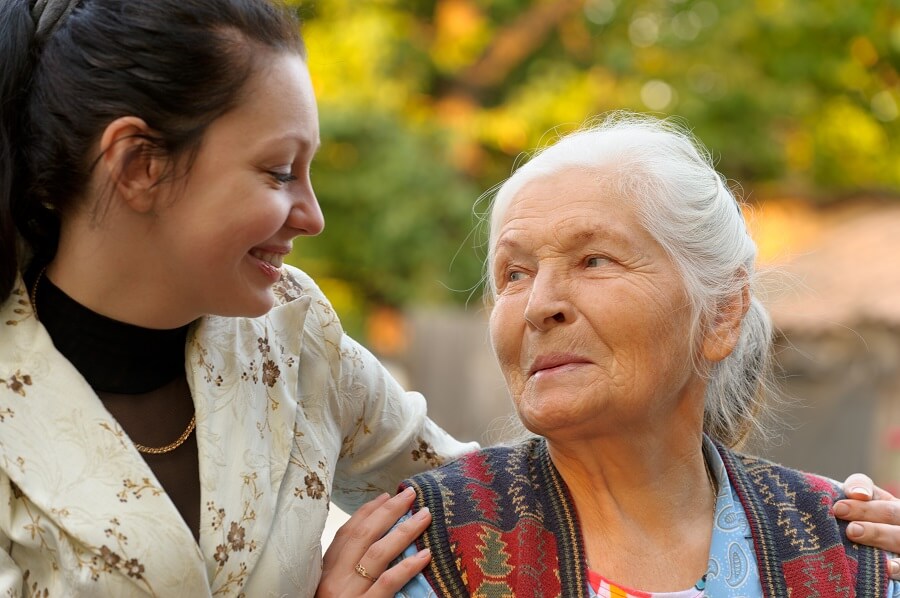Typically, terminal care refers to a type of care that aims to make people suffering from a terminal illness as comfortable as possible. This can involve helping them with physical pain, emotional struggles, guidance, and many others. While there is terminal care for the elderly, this doesn’t limit the number of people who can choose this type of care. For instance, anyone suffering from a terminal illness, no matter the type of illness or age group, can go through terminal care. Since terminal care does entail a change in the life of the ill person and his or her family, today’s guide will tell you everything you need to know about how to support someone who is going through terminal care.
How to Be There for People Going Through Terminal Care
Don’t Just Focus on the Illness
A lot of ill people loathe being treated constantly as if the only thing that defines them is their condition. As much as you want to pay attention to the struggles your loved one is going through by being in terminal care, it would be a mistake to completely change your relationship because of this. A person who is suffering from cancer, for instance, is still the same person and has the same feelings and needs even after the diagnosis. When it comes to care for terminally ill cancer patients, you should leave these concerns to the medical personnel. You can focus on being there for that person instead. This can mean anything from chatting about random events to being a shoulder to cry on.
Help Them Come to Terms with the Illness
People react differently to the possibility of death. No matter the reaction, you can be sure that no one is completely indifferent to the prospect of dying. If someone close to you is in terminal care, the best thing you can do is help them sort through their feelings and come to terms with the fact that they’ve been diagnosed with a terminal illness. Depending on how much time they have left, they have to learn to accept the illness and try to accommodate it into their lives. This means focusing on enjoying whatever time they have left.

Listen to Them and Suggest Professional Help
Sometimes, people who are going through terminal care simply need someone they can talk to. It might happen that they’re in denial and don’t want to accept the fact that they have a terminal illness. This is something natural, a defense mechanism against the fear of death and pain. Up to a point, denial can be harmless. All you can do is listen to your loved one and try to understand their fears. If they don’t automatically open up, make sure they know you are someone they can talk too. Still, if denial gets in the way of them seeking professional help such as therapy, you shouldn’t ignore it. Try to suggest some therapy sessions instead. As much as you love someone, you can’t (and shouldn’t) try to counsel them in matters that are beyond your area of expertise.
Encourage Talking About Happy Memories
A lot of people fear death because they feel like they haven’t done everything they wanted to do in life. In order to show your loved one that his or her life did matter (and still does), encourage them to tell you stories about their life. They can be anything from how they met their life partner, to what their first job was, and so on. Talking about what they’ve accomplished in life and the people whose life they changed just by being there can help terminally ill people understand that their experience mattered, that they meant something for other people, and that those people will forever remember them fondly.
Try to Make Them Laugh
This might sound easier said than done. However, laughter can truly improve a person’s mood, even if they’re dealing with terminal care. As long as your loved one is still with you, you should do everything in your power to keep them happy. Read some funny stories, tell them hilarious anecdotes, watch a comedy movie together, and so on. However, remember that you shouldn’t force humor in situations which are extremely serious. But at the same time, you also shouldn’t avoid it. A lot of people avoid laughing when they’re near people suffering from a terminal illness. This can make that person feel even worse because of their condition. Moreover, it can make him or her feel self-conscious that they’re affecting other people’s lives as well. So whenever something funny happens, don’t be afraid to laugh as hard as you can.

Offer to Help Them with Logistical Matters
A person who is in terminal care will definitely have to consider all the logistical issues that he or she has to take care of before passing. Some of them can only be done by that person. However, there are others that family members or close friends can help with. If you want to be there for the person you love, offer your help whenever they need it, no matter what the issue is. However, never try to impose your opinions on their decisions. Remember that these are end-of-life decisions that they have to make by themselves. You’re only there to help or provide an opinion (if asked for).
Don’t Offer False Hope
As much as you want to make the other person feel better, offering or even encouraging false hope that someone who is suffering from a terminal illness can somehow escape death is one of the worst mistakes you could make. Not acknowledging death is not going to make it go away. Instead, it’s going to make things even more difficult when reality strikes. Consequently, don’t try to minimize the severity of the situation. It is indeed a terribly sad event. However, it is one that you and your loved one have to come to terms with.
Closing Remarks
Being there for someone who is going through terminal care can be extremely difficult. Still, it is one of the most noble things you could do, and something that you definitely won’t regret doing as the years go by and you remember your loved one fondly. We hope that the tips we provided you with above will help you gain a better understanding of your role as relative or friend of someone who is in terminal care.





